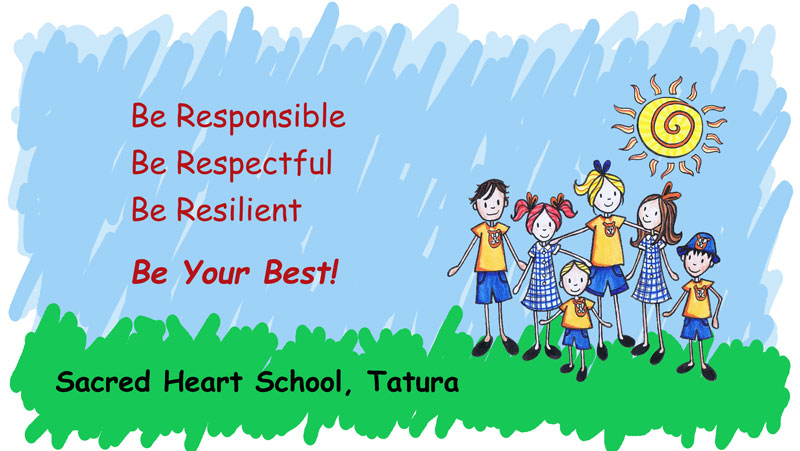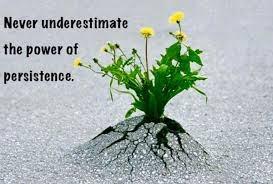Wellbeing MATTERS!

Wellbeing MATTERS!
Dear Families,
As students and staff alike continue to work at being ‘back at school’ and are starting to find their routines again, it is essential that we recognise the fact that we may be experiencing a lack of ‘stamina’. As we progress through the term we may be experiencing some fatigue that leaves us feeling exhausted as the weeks pass. I certainly am feeling some fatigue as I approach the end of week 8 at school - been having a few ‘nanna-naps’ during the 7pm news in the evenings!
So how can we help our students and staff persist when we are feeling challenged or lacking motivation or ‘oomph’ to BE OUR BEST?
Working through challenges: 7 strategies for building persistence, resilience and stamina
So much of success in life boils down to persistence. While “natural ability” is often touted as a gift that must be nurtured, students (and staff) who have learned the art of persistence are able to work through challenges, deal with failure and achieve their goals. But how can you help a child develop persistence?
Like a sprinter who has not trained to run a marathon, learners can’t keep learning in the long-term if they haven’t developed the stamina they need to cope with challenges and failures. Teaching persistence depends on developing a student’s stamina. However, to develop stamina and persistence, they need to have the right learning environment.
Teach positive self-talk - Some learners don’t know how to motivate themselves through positive self-talk. Their standard internal monologue when faced with a learning challenge may be “I can’t do this,” or “I’m too stupid to learn this.” Teach them there are better ways to use self-talk. Give them specific wording: “I can do this if I keep at it,” or “If I’m stuck, I’ll ask for help.”
Expect achievement - It’s amazing how learners can blossom when the people they look up to express confidence in their ability to achieve their goals. So have high, but reasonable, expectations for your student – and make sure they have access to resources to help them, and that they know how to use these tools.
Help learners develop a growth mindset - Learners need to know that they can get better at their chosen task if they put in effort. Rather than a you’ve-got-it-or-you-don’t mentality, help them to see their challenge as a skill that can be mastered. Encourage them to have this mindset by connecting the effort they put in with the progress they make. Say things like, “Your extra reading practice is working – you’re reading new words much more easily now.”
Push a bit but not too much - Sometimes all that is needed is a bit of encouragement to overcome a hurdle. Reminding your learner how good they will feel when they finish their homework, for example, can be all they need. At the same time, it’s important for them to know they can take a break when they need it – but it’s important they learn to come back after the break to complete the work. This way they learn they can do more with persistence.
Talk up persistence - Sometimes as Parents and teachers, we don’t want to talk about the challenges we faced and overcame; perhaps we feel it’s awkward or discouraging. Yet, relating a story about something you personally found difficult – and yet kept at until you finished it – is a great way to teach learners that we all feel like giving up sometimes. Without lecturing, you’re teaching them how to overcome the negative feelings that can stop them facing challenges.
Use technology - Technology can be used to great advantage for learners. Often, technology is more engaging and interactive, keeping students motivated. However, with any software or learning technology, make sure it’s proven and backed by research.
The brain is like a muscle - You may think neuroscience isn’t the kind of subject that will motivate your learner, but it might. Teach them about brain plasticity – the idea that the brain changes in response to how it’s used – to help them understand focused, sustained effort will pay off.
Rinse repeat - Persistence won’t be learned in one session. All of the above suggestions need to be repeated to truly sink in. However, over time, learners will increase their stamina, improve their persistence and increase their motivation for learning.
And we should never underestimate our children and their abilities to cope - ours too! Together we will make it to week 11! Using our “Can-do” mindset will certainly get us over the line!
There is still so much learning and teaching to occur over the next three to four weeks and it is vital we support our children to continue to make strong choices to be their best!
Please feel free to contact me if you have any concerns or queries.
Debbie Turvey
Pastoral Wellbeing & Learning Diversity Leader
dturvey@shtatura.catholic.edu.au
(03) 5824 1841
Stay tuned in our school newsletter for more ideas and conversations around promoting wellbeing and learning in our school community.
Have a great week, make the choice, be your best!




